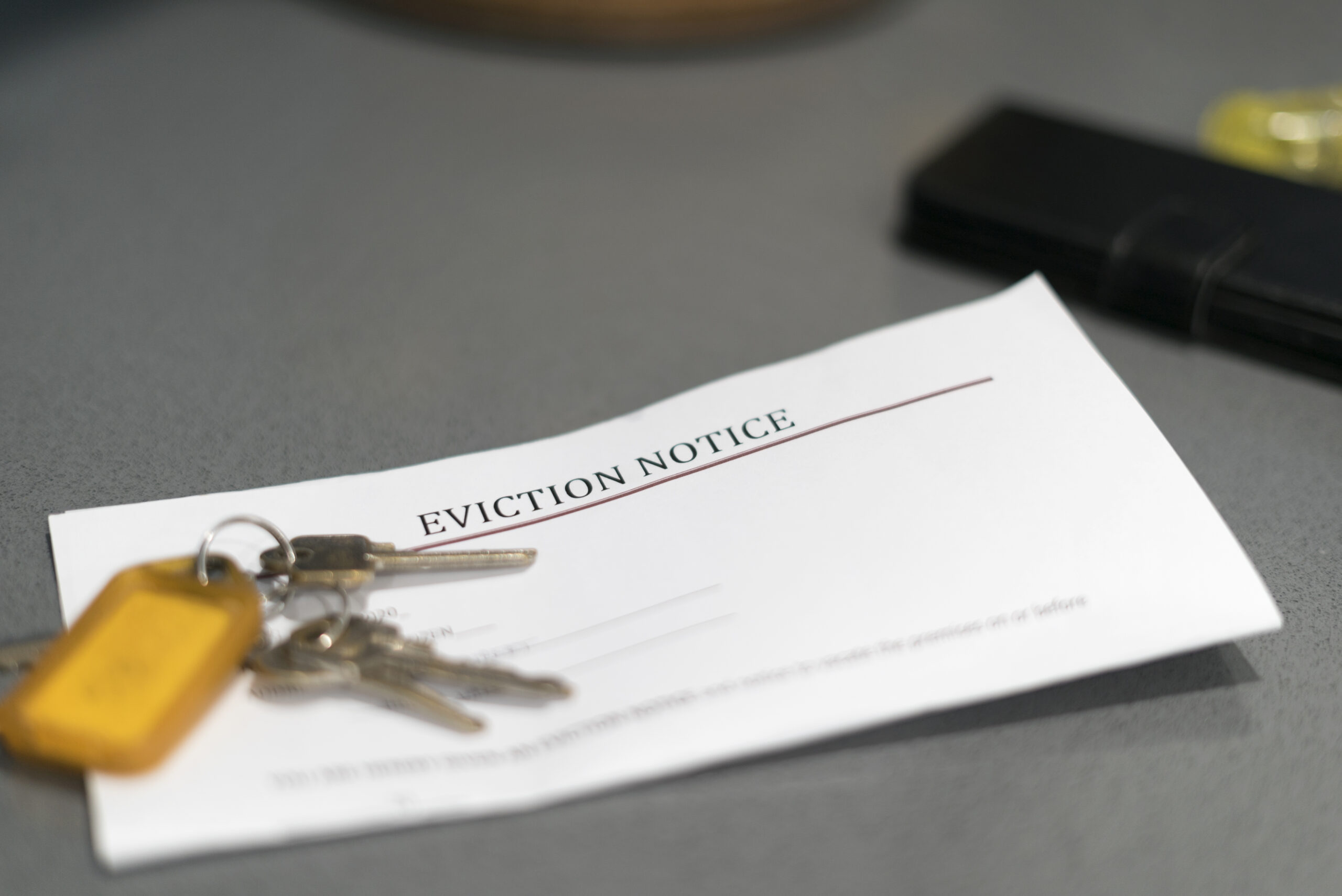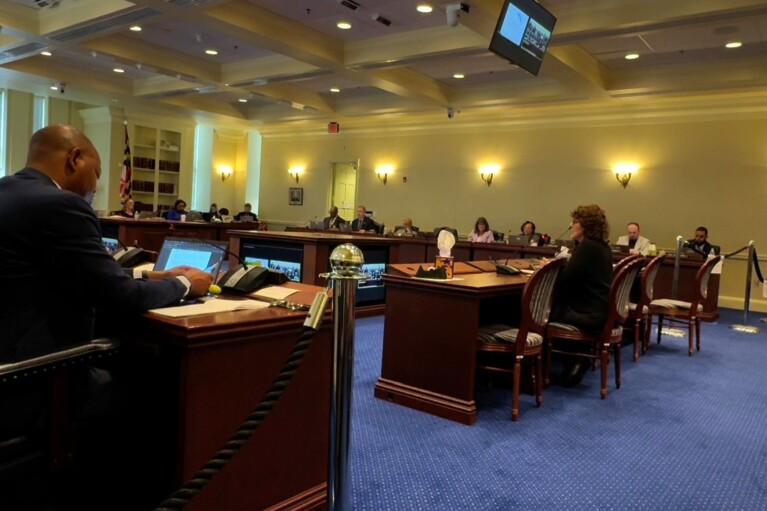Bill Would Let Tenants Ask Court to Shield Pandemic-Related Eviction Records

Highness Yemba fell behind on rent last year after she had to miss work to help her mother recover from COVID-19. She faced eviction, but received rental assistance and was able to pay off what she owed.
But despite catching up on rent, those eviction filings from last year have made it difficult for her to find a new apartment, Yemba told members of the House Judiciary Committee during a virtual hearing Wednesday. She said she asked a judge to seal records relating to those eviction filings, but that request was denied.
“I’m seven months pregnant now, trying to find housing and a place for me and my daughter to stay, and it’s difficult,” Yemba said.
James Coyner was laid off in late 2020 due to the COVID-19 pandemic, and said he faced nine eviction filings despite receiving rental assistance. He has since paid off the balances but said he’s worried about finding a new place to live once his lease is up in September.
“With three children as a widower it was kind of scary going through this process and getting these notices,” he said.
Although courts were shut down due to the pandemic and limited federal and state protections were available to tenants facing eviction, new failure to pay rent evictions have been filed throughout the pandemic.
State lawmakers are considering legislation to allow tenants to shield those filings from public view. House Bill 521, sponsored by Del. Joseline Peña-Melnyk (D-Prince George’s), would allow tenants to petition courts to shield records of failure to pay rent cases that were filed between March 5, 2020 and Jan. 1, 2022.
The narrowly-tailored legislation applies specifically to cases where the failure to pay rent was due to a loss of income caused by the pandemic. Peña-Melnyk said the bill has support from the Apartment and Office Building Association, a group that lobbies for landlords.
“This will protect [tenants] from housing or employment discrimination in the future and allow them to get back on their feet, as these evictions were triggered by unprecedented conditions and not their fault,” Peña-Melnyk said.
Even if a failure to pay rent filing doesn’t result in an eviction and a tenant pays all owed rent, that court record can mar a tenant’s search for housing for years, Marceline White, the executive director of the Maryland Consumer Rights Coalition, said at the Wednesday hearing.
“It really creates kind of a domino effect for low income tenants,” White said.
Zafar Shah, an attorney with the Public Justice Center, said there were more than 530,000 failure to pay rent cases filed between March 5, 2020 and Jan. 1, 2022. During the summer of 2021, Shah said, the ratio of failure to pay rent cases filed to the number of households served by emergency rental assistance programs was nine to one.
“That just speaks to the depth of the harm caused by these serial filings during a pandemic and an uneven economic recovery,” Shah said.
Peña-Melnyk’s bill covers an “index, a docket entry, a petition, a memorandum, a transcription of proceedings, an electronic recording, an order, and a judgment and any electronic information about the proceeding on the website maintained by the Maryland Judiciary” for applicable cases.
Del. Jon S. Cardin (D-Baltimore County) noted that the Maryland State Bar Association suggested the burden for proving that a failure to pay rent was related to the COVID-19 pandemic be moved to the tenant rather than to the landlord. Peña-Melnyk said she’s planning an amendment to address those concerns.
Landlords are allowed to object to a tenant’s petition to shield applicable records under Peña-Melnyk’s bill. Shah suggested that there should also be an amendment to create an “evidentiary standard” for landlords who object to the petition.
Shah also said lawmakers should consider expanding the bill’s timeframe to the end of May of this year in order to account for evictions caused by the highly contagious omicron variant.
State and local governments in Maryland received millions in federal rent relief funding as part of emergency measures passed by Congress in 2020 and 2021, but that funding has at times been slow to get to tenants and landlords. Legislation aimed at protecting tenants from evictions during the pandemic failed to pass during the General Assembly’s 2021 session, but lawmakers have vowed to enact reforms this year — including legislation to protect tenants from eviction if they have applied for rent relief funding.




 Creative Commons Attribution
Creative Commons Attribution